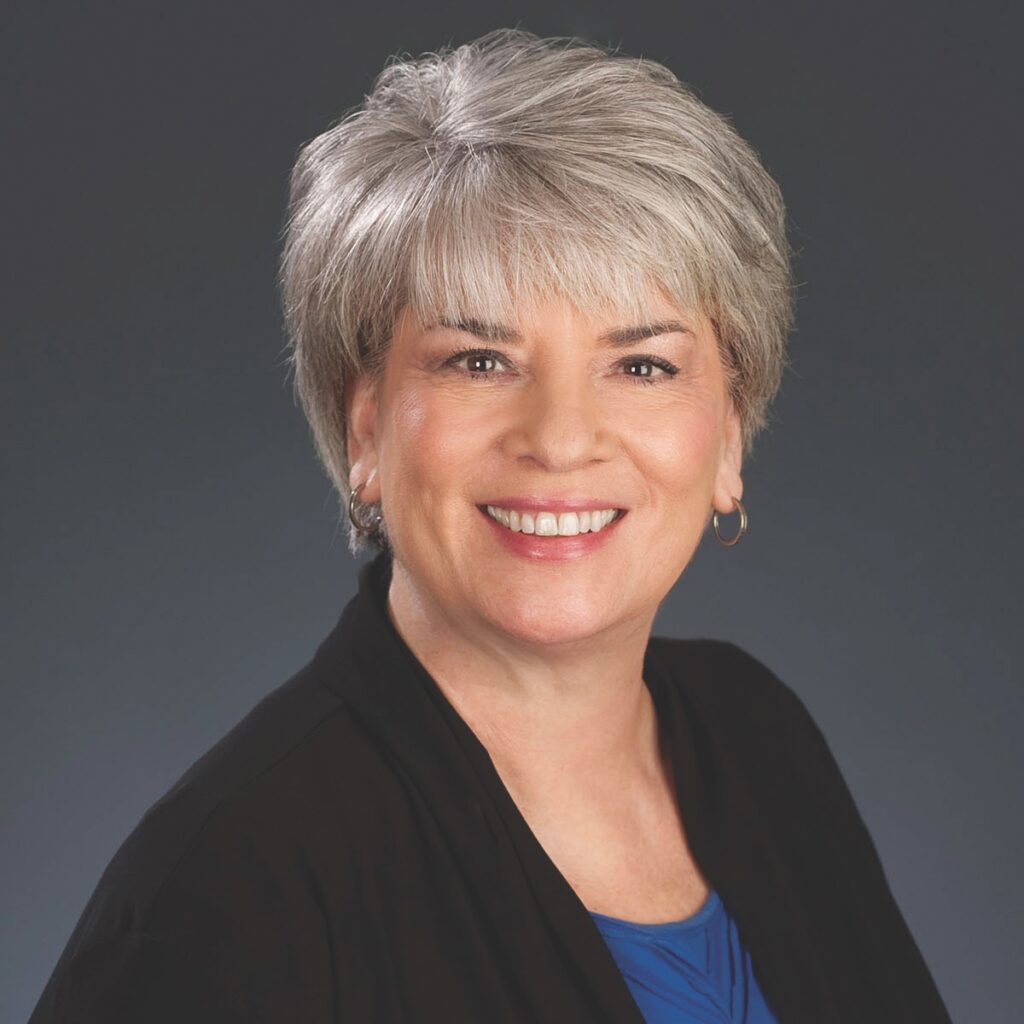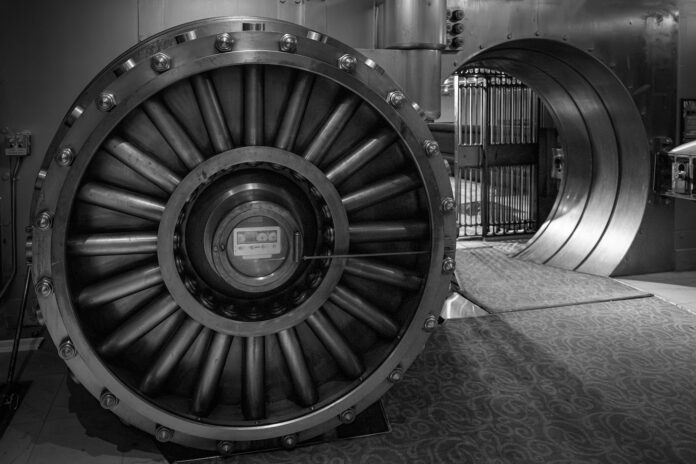Only a few years ago, financial services were a rare luxury for cannabis companies in the United States. Few were able to secure even a basic bank account, and those that could find an institution willing to take the risk of working with a business that trafficks in federally illegal goods faced compliance hurdles and exorbitant service fees.
Even when companies secured banking relationships, many experienced sudden account closures for reasons that often weren’t explained well, if at all.
More recently, however, financial institutions—particularly credit unions and regional banks—have been more receptive to cannabis clients. Today, quite a few offer services similar to those traditional businesses enjoy, albeit with a lot more oversight and paperwork.
Carole McCormick was among the pioneers in developing cannabis banking and financial compliance programs during her tenure as chief compliance officer at North Bay Credit Union (NBCU) in Santa Rosa, California. In 2017, the institution became one of the first in the U.S. to openly offer commercial accounts to plant-touching businesses. McCormick subsequently helped many farmers in the Emerald Triangle transition from the illicit market to the legal market with a legitimate bank account and a clear understanding of the new rules of the game. Today, as president of NBCU division Greenbax Marketplace, she and her team help clients across the country with everything from cash pickups and loans to paying and receiving funds via secure electronic platforms.
Much of the paperwork financial institutions must file is dictated by the Bank Secrecy Act (BSA), which is designed primarily to help detect and prevent money laundering. The BSA requires financial institutions and other businesses to “keep records of cash purchases of negotiable instruments, file reports of cash transactions exceeding $10,000 (daily aggregate amount), and report suspicious activity that might signify money laundering, tax evasion, or other criminal activities.”
If cannabis is rescheduled or descheduled, the expectation is that much of this paperwork no longer will be required. McCormick is not so sure about that, especially if new federal regulations are introduced. Although Congress has considered multiple banking-reform bills since 2017—most notably the Secure and Fair Enforcement (SAFE) Banking Act—significant legislation has yet to emerge as law. Nevertheless, McCormick said, as long as businesses comply with state laws and regulations and maintain transparent financial records, there is little reason to believe the Treasury Department’s Financial Crimes Enforcement Network (FinCEN) will impose fines or other penalties against legal operators or their banking partners.
Seven years into her tenure as an industry banking specialist, McCormick is enjoying her job more than ever and embracing the challenge of expanding Greenbax’s services across the country.

“This will be my last job, and I love it so much,” she said. “When we started, nobody had cannabis banking experience, but we’re finally at a place where we’ve hired a couple people who have experience. For me personally, it’s been so fun to build something from a very small start and to bring on employees and give them the training and expertise for an industry that will just continue to grow.”
What is the most common misconception about cannabis banking?
The biggest thing is always that people are surprised by the compliance oversight that is really required.
I think regulators don’t often understand why operators don’t understand the importance of compliance, but we spend a lot of time educating our accounts about why we do everything we do, and it’s important for them to understand we are in this together. We have a great track record, and that’s why we’ve been able to [provide financial services to the industry] for so long—because we do it right. It’s not a big ask, but we do [look at] things like tax returns and clients’ [profit-and-loss statements] every quarter. If we see something that raises a question, we reach out to them to get responses back. And we tell them up front, “Please understand we’re doing that so we can continue to provide the service to you.”
That’s the biggest thing people don’t understand. They’re used to just a regular Wells Fargo or Bank of America checking account, and nobody ever calls them about anything. Cannabis banking is different, especially for an operator that’s never been in the business before but sees the opportunity in the industry. There is a learning curve; no question about it.
Do the intricacies of compliance ever cause friction between banks and businesses?
Most of the time, if we open an account we’re definitely on the same page with the client. But through the onboarding process, there are some times when it’s clear that an operator really isn’t set up to provide what we need or just doesn’t agree to provide it. From six and a half years ago to today, our onboarding process has become way more streamlined. We were very, very careful starting out, because we didn’t know what we didn’t know. But there are some times when an operator just isn’t a good fit for us, and we would rather find that out up front.
What are some of the most common customer complaints about cannabis banking?
I’m sure it depends on the program. If you look back six years ago, we were focused on only California, and operators were so grateful to have banking from a financial institution that understood the compliance that would be required. It was all about anti-money-laundering, to make sure only legal product funds are hitting the financial institution.
From our vantage point, most of the time when a bank or credit union has jumped in and then jumped out it’s been because they thought [providing financial services to the cannabis industry] was going to be a much easier program. So you see them jump out, and it leaves operators all of a sudden without an account. It’s just another disruption to their business, because they then have to go find a replacement.
But we also notice much more pushback from customers not understanding the compliance piece of [banking], and for them it feels like more hoops to jump through. My team has to spend quite a bit of time on the onboarding side making sure our operators understand what’s going to be required of them. There’s an upfront conversation to make sure we’re a good fit, because some would just rather take their chances until they’re scrambling to look for a compliant program.
Do you expect to see the SAFE Banking Act or similar legislation pass over the next few years?
It really does depend on this year’s election. I honestly think we are years away from descheduling. There are so many other things that are dependent on that decision, including global drug treaties and a lot of other downstream effects. So I think it’s way more complicated than most operators and other people in the United States are thinking.
The SAFE Banking Act has a good chance of passing, but I do think that depends on the election. And I’m just not really convinced it would make that much difference. Again, if you want a compliant cannabis account, you can get one today. I mean, it’s not impossible to get one if you really want one. If people think SAFE Banking is going to mean all the big banks all of a sudden open their doors and welcome cannabis, I don’t think that’s going to happen.
Will [passage of the act] do anything to reduce the amount of paperwork and fees and all the bureaucracy around cannabis banking? No, because the paperwork and fees are really from FinCEN. There’s been very little guidance for financial institutions getting into this. Since [then-Attorney-General Jeff Sessions rescinded the Cole Memo’s laissez-faire mandate regarding state-legal cannabis businesses], there has been guidance from groups like the National Credit Union Association saying “if you want to support cannabis, here are some guidelines for what makes a compliant program.” But that’s different from a regulation. It’s more like “here are some things to consider.”
As a banker, do you expect rescheduling to have an effect on banking?
I see people on LinkedIn saying rescheduling is going to help companies that are in search of banking relationships, but operators who want a compliant bank account can secure one right now. We have lots of credit unions and regional banks in the space. I think rescheduling will definitely help the operators on the [Internal Revenue Code Section] 280E tax side, which feels like the biggest thing. [IRC Section 280E prohibits businesses that deal in federally illegal substances from deducting most normal business expenses from their federal taxes. —Ed.]
I do think we, as banking providers, are always looking for ways to drive down the cost of offering our services, because we understand this is an industry that pays higher taxes just to be in a legal industry. So for rescheduling, I don’t see it having a big impact on banking, but I do think over time when [the plant becomes] federally legal, that will be a game changer.
Will rescheduling encourage larger banks and national institutions to take on cannabis accounts, or will they stay on the sidelines until full legalization?
Larger banks are already in cannabis whether they know it or not. I’ll give you one example. We have a product on our platform called GBXPay, which is a product for retailers to pay vendors. When we look at where those payments are going, they’re going to Chase and Wells Fargo and other banks, but the accounts are not named cannabis accounts. Companies establish holding-company accounts, or they come up with a name that is not obvious. I mean, I’m not inside one of those banks to know what’s really going on, but we’ve seen it enough to know there’s plenty of cannabis funds sitting in banks that don’t support the industry.
But all banks have software running in the background to ensure compliance with the BSA, and that’s how those accounts get closed down. They’ll receive a payment from an obvious cannabis operator, and all of a sudden they’ll get shut down. But sometimes, the bank just looks the other way. It’s really hard to figure out where they turn a blind eye and where they just kind of go all in and completely obliterate an account. I’ve seen both sides of it.
Where large banks saw oversight risks and compliance headaches due to the plant’s federal status, NBCU and other regional institutions saw an opportunity to develop lasting client relationships in a brand-new sector. Do you ever worry clients may migrate to the big banks when they finally enter the space?
That’s something I think about all the time. One of the reasons NBCU spun off Greenbax was so we could offer multistate operators one solution across state lines, so they didn’t have to have a bank in each state where they operate. That’s a benefit of working with a national, versus a local or regional, bank.
I believe we’ve built loyalty with our customers. I know my team gives all kinds of service a big bank would never provide, and I believe that will count for something. As long as our customer service is matched with reasonable rates, I really think we’ll be fine.
On top of that, remember that even when cannabis becomes legal it will potentially remain a pretty cash-intensive business. It’s no different from gambling, which is legal in lots of places, but heavy compliance oversight is still required for that vertical. I expect cannabis to be the same. At Greenbax, we’ve got the expertise for this industry, and I think we’re going to be needed regardless of descheduling or rescheduling.
Do you worry about federal crackdowns?
No, I don’t. Early on, nobody knew whether the feds were going to come after employees of credit unions or financial institutions for taking the chance to offer banking to the industry, but we all made those personal choices. For me, it was definitely worth supporting the industry. I’ve never lived in fear, because we’ve always been in lockstep with our [banking] regulators and had really good relationships with them during our exam process. Anytime we need some kind of clarification on anything, we’ve got those relationships.
When the plant’s federal status changes, I do think it will be a challenge if we have to overlay a new set of federal regulations on top of state-specific regulations. Just think about how that would look and how long it would take to get through it. I think federal regulations will be a big burden for financial institutions and operators on top of state-specific rules. To me, it feels like it’s going to be even more of a regulatory … I don’t want to say mess, but you get my point. Just a lot of details for all of us to work through and understand. Compliance issues will be greater in that scenario, not less.
Where is your focus in the short term?
As a team, we’ve been in development mode and just launched our merchant-pay products. We’re just trying to put the right products and services out there. So we’re pretty focused on that, because we’ve been doing it for so long. We’ve got our processes down around cash pickup and that kind of thing, but we often are looking for referral partners. We can’t be everything to everybody, but we do have some really great referral partners. For instance, when you get a new operator, especially a startup in some of the new states, they often need help with getting payroll set up. We’ve got some good partners we can refer them to.
If we want to be that resource to our customers, we’re constantly looking for what else our customers need. If we can’t give it to them and it doesn’t fit within our expertise, we partner with someone, because our clients trust us as their bankers.
I don’t know if that keeps me up at night, but I’m really focused on trying to find the best in class for our referral relationships.
What are the most satisfying parts of your job?
To have people on our team that were hired five or six years ago who are still here and helped build this, that gives me a real sense of satisfaction. There’s also a sense of satisfaction in supporting an industry that hasn’t been widely supported. I think we all feel like we’re part of the cause. We’re really proud of what we’ve done, and we’re really excited about what the future holds and grateful to be part of this.











